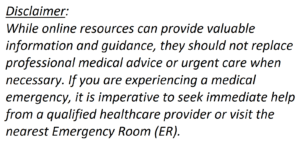The absence of menstrual periods, known as amenorrhea, can be a cause for concern and may indicate underlying health issues. Consulting with an online Ob/Gyn doctor can offer valuable insights and assistance in addressing this condition.
But why opt for an online doctor over an in-person visit?
Consider the two following scenarios:
Scenario 1: Sarah, a 32-year-old woman, noticed that her menstrual periods had become irregular over the past few months, eventually leading to a complete absence of menstruation for the past three months. Concerned about her health, she decided to seek help from an online Ob/Gyn. During her virtual consultation, Sarah discussed her medical history, lifestyle factors, and the timeline of her menstrual irregularities in detail with the online doctor.
The online Ob/Gyn conducted a comprehensive assessment, asking Sarah about any associated symptoms, such as changes in weight, mood swings, or hot flashes. Based on her history, the doctor recommended diagnostic tests, including hormone assessments and thyroid function tests, to identify potential causes of her missed periods. Sarah was able to schedule these tests conveniently at a local laboratory and share the results with the online doctor.
Following the diagnostic evaluation, the online Ob/Gyn developed a personalized treatment plan tailored to Sarah's specific needs. This included lifestyle modifications, such as stress reduction techniques and dietary changes, as well as hormone therapy to regulate her menstrual cycle. Sarah appreciated the convenience of virtual follow-up appointments, where she could easily discuss her progress, ask questions, and adjust her treatment plan as needed without the hassle of scheduling in-person visits.
Scenario 2: Emily, also a 32-year-old woman, experienced similar menstrual irregularities and sought help from an in-person Ob/Gyn. After scheduling an appointment, she had to wait several weeks for an available slot, during which time her anxiety about her condition grew. When Emily finally met with the in-person doctor, she felt rushed during the appointment due to the doctor's busy schedule and limited time.
During the consultation, Emily provided her medical history and described her symptoms to the in-person Ob/Gyn. The doctor conducted a pelvic exam and recommended some basic blood tests but did not offer as detailed an assessment as Sarah experienced in her online consultation. Emily left the appointment feeling uncertain about her diagnosis and treatment plan.
Following the initial appointment, Emily had to wait several more weeks for the results of her tests and schedule a follow-up visit with the in-person Ob/Gyn. She found it challenging to coordinate her schedule with the doctor's availability and felt frustrated by the delays in receiving care.
In comparing Sarah's experience with the online Ob/Gyn to Emily's experience with the in-person Ob/Gyn, several key differences emerge. Sarah benefited from the convenience, timeliness, and accessibility of virtual consultations, allowing her to receive prompt evaluation and personalized treatment without the delays and scheduling difficulties associated with in-person visits.
The online Ob/Gyn provided a comprehensive assessment, recommended appropriate diagnostic tests, and developed a tailored treatment plan for Sarah's condition. With virtual follow-up appointments, Sarah could easily monitor her progress and adjust her treatment as needed, leading to better outcomes and a more positive overall experience.
Given the advantages of online consultations, individuals experiencing missed or absent periods should consider seeking help from an online Ob/Gyn first. By doing so, they can expedite the process of diagnosis and treatment, leading to better outcomes and improved reproductive health.
